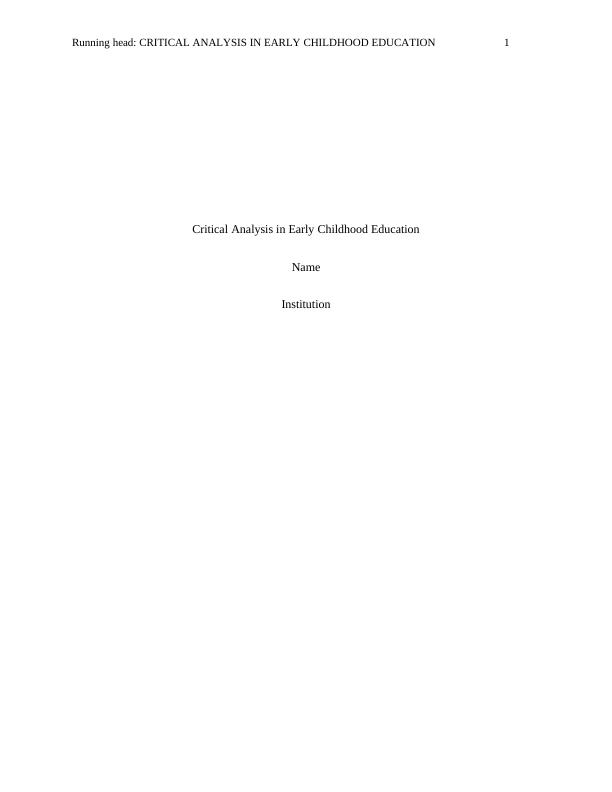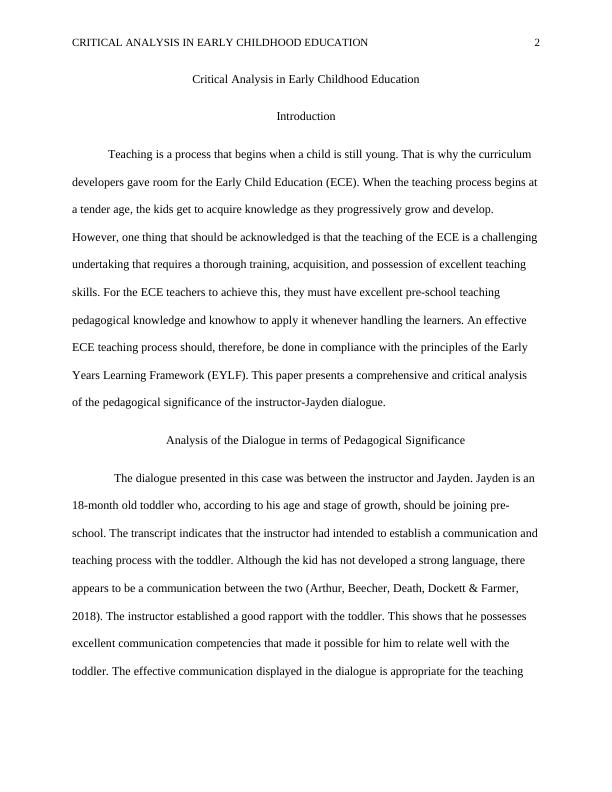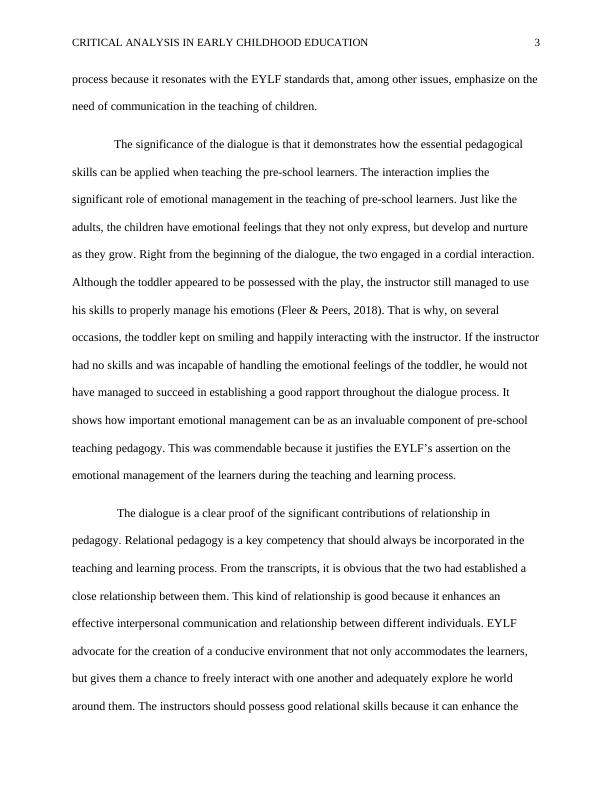Critical Analysis in Early Childhood Education
The assignment requires recording and transcribing a dialogue and interaction with an 18 months old infant, followed by a critical analysis of the dialogue's pedagogical significance and its links to infants and toddlers as learners in curriculum.
9 Pages2299 Words467 Views
Added on 2022-11-13
About This Document
This paper presents a comprehensive and critical analysis of the pedagogical significance of the instructor-Jayden dialogue in Early Childhood Education. It emphasizes the importance of emotional management, relationship, and communication in the teaching and learning process.
Critical Analysis in Early Childhood Education
The assignment requires recording and transcribing a dialogue and interaction with an 18 months old infant, followed by a critical analysis of the dialogue's pedagogical significance and its links to infants and toddlers as learners in curriculum.
Added on 2022-11-13
ShareRelated Documents
End of preview
Want to access all the pages? Upload your documents or become a member.
Australian Child Care: EYLF and National Quality Framework
|6
|1516
|337
Conversation Analysis Report on Early Childhood Education
|16
|3073
|337
Early Childhood Education
|8
|1513
|66
Critical Analysis of Teaching and Learning in Early Childhood Education
|13
|3777
|497
STEM in Early Childhood Education: Methods, Pedagogies, and Policies
|10
|2871
|152
Learning Across the Early Childhood Curriculum
|9
|1951
|293



